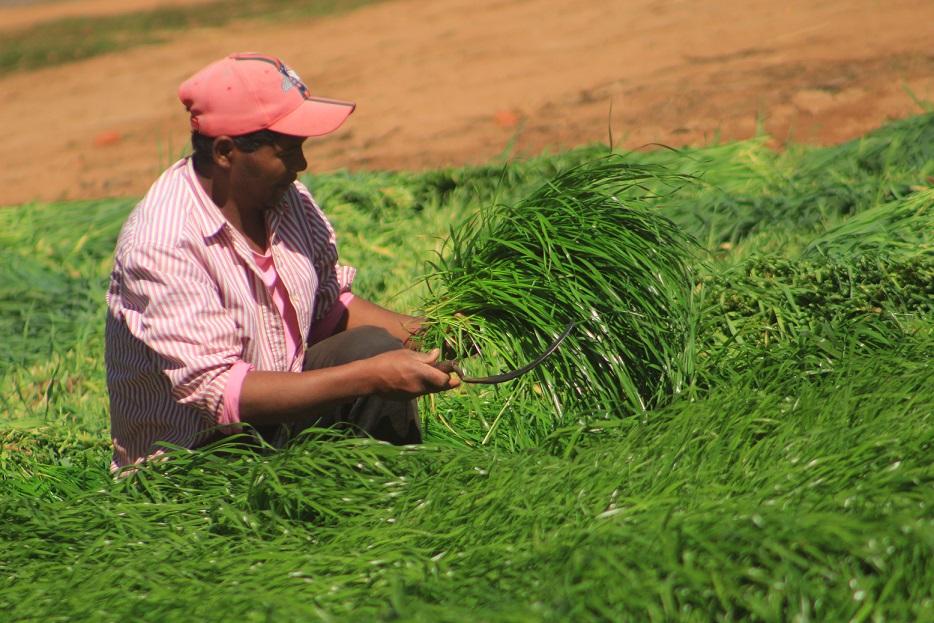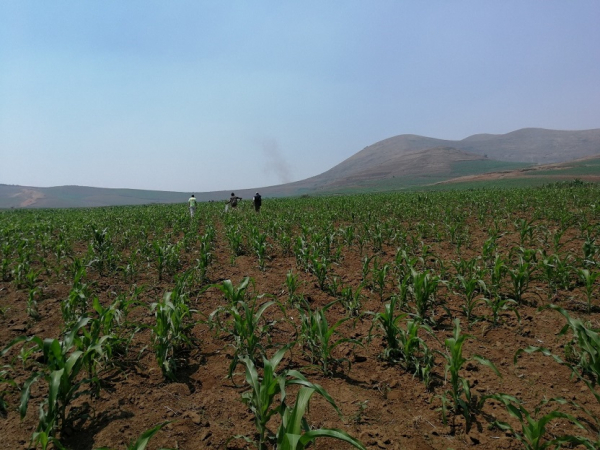- Home
- Worldwide
- CIRAD worldwide
- Projects
- CASEF HAUTES TERRES project
Technical assistance in support of agricultural value chains in the Central Highlands - CASEF HAUTES TERRES

Farmer cutting rye grass to feed his dairy cow © S. Vololonirina
Issues
The objectives were set with a view to alleviating poverty and ensuring that the agricultural and land sectors contribute to agricultural growth. Using a value chain approach centring on markets and driven by demand, the aim is to facilitate access to markets for farming households and thus foster the development of the agrifood sector in Madagascar, so as to reduce the nationwide impact of multidimensional poverty.
In each zone, the client has identified various agricultural and agrifood products with comparative commercial advantages on national and export markets. The main obstacles to the development of the relevant value chains have also been pinpointed. The challenge is to lift those obstacles, primarily:
- Low levels of production among farming households
- Inadequate, poor-quality marketing infrastructures
- Insufficiently structured agricultural markets
- Weak institutions
- A lack of coherent policies.
Description
The project began with seven value chains: dairy, maize and soybean for animal feed, green beans, potatoes, onions, apples and passion fruits. After a year, the group was asked to restrict its operations to the first three.
The fields of intervention, which were defined based on demand and certain criteria (such as economic relevance, financial viability, inclusion of smallholders, gender issues and environmental sustainability) are as follows:
- Improving the environment in terms of commercial agricultural value chains
- Knowledge and technology transfer
- Marketing infrastructure maintenance (tracks, storage)
- Project operational management (monitoring-assessment, capitalization of experience).
The project is working to help structure, coordinate and plan value chains and promote governance mechanisms, and apply regulations, notably through the drafting of development plans. It is supporting the development of supply networks for private economic operators and cooperatives (around twenty large organizations), and relations between value chain stakeholders. This is done by providing access to improved technology and building capacity among producers, and also among middlemen (collectors, sub-collectors and processors). Helping cooperatives build capacity involves implementing a specific tool developed by SOCODEVI (PerformCoop).
CIRAD is providing its technical and economic expertise in each value chain, particularly contributions in terms of their environment (diagnoses and recommendations) and knowledge and technology transfers (diagnoses, technic-economic proposals, extension tools).
Expected impacts
- Agricultural households, farmers’ organizations, other players and the value chains concerned will be better placed to respond to national and international demand, by means of efficient, effective and sustainable contract farming
- Households will boost their product sales in terms of both quality and quantity, and their income
- Decent job creation in the agrifood sector will be boosted, thanks to the added value generated and the reduced marketing risks
- A rural economic environment favouring private and collective investment will have been created within the agrifood sector, by reducing transaction costs between operators within the target value chains.
Contract partners
- Société de coopération pour le développement international (SOCODEVI- Canada), lead partner;
- SAHA - Soa Afafy Hampahomby ny ho Avy NGO (Madagascar);
- Centre for Rural Development and Applied Research (FIFAMANOR - Madagascar).
























